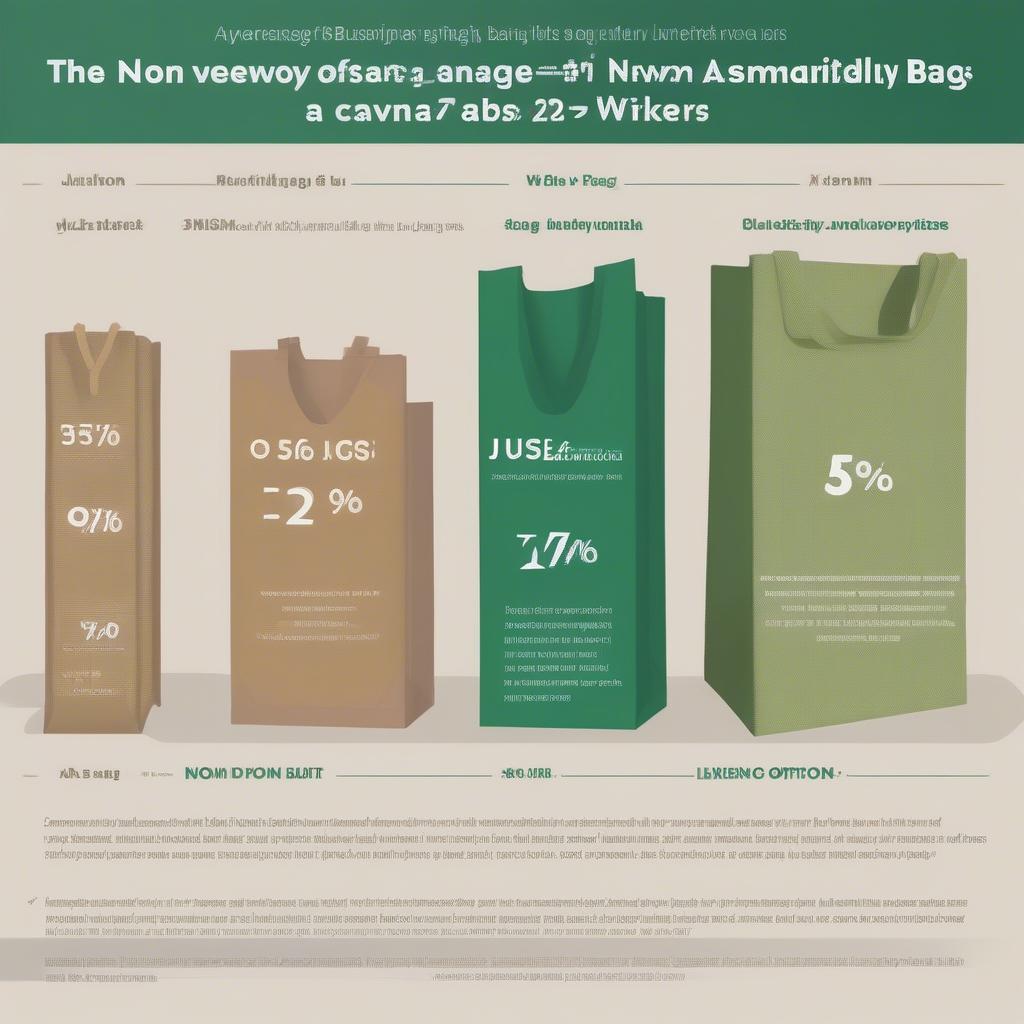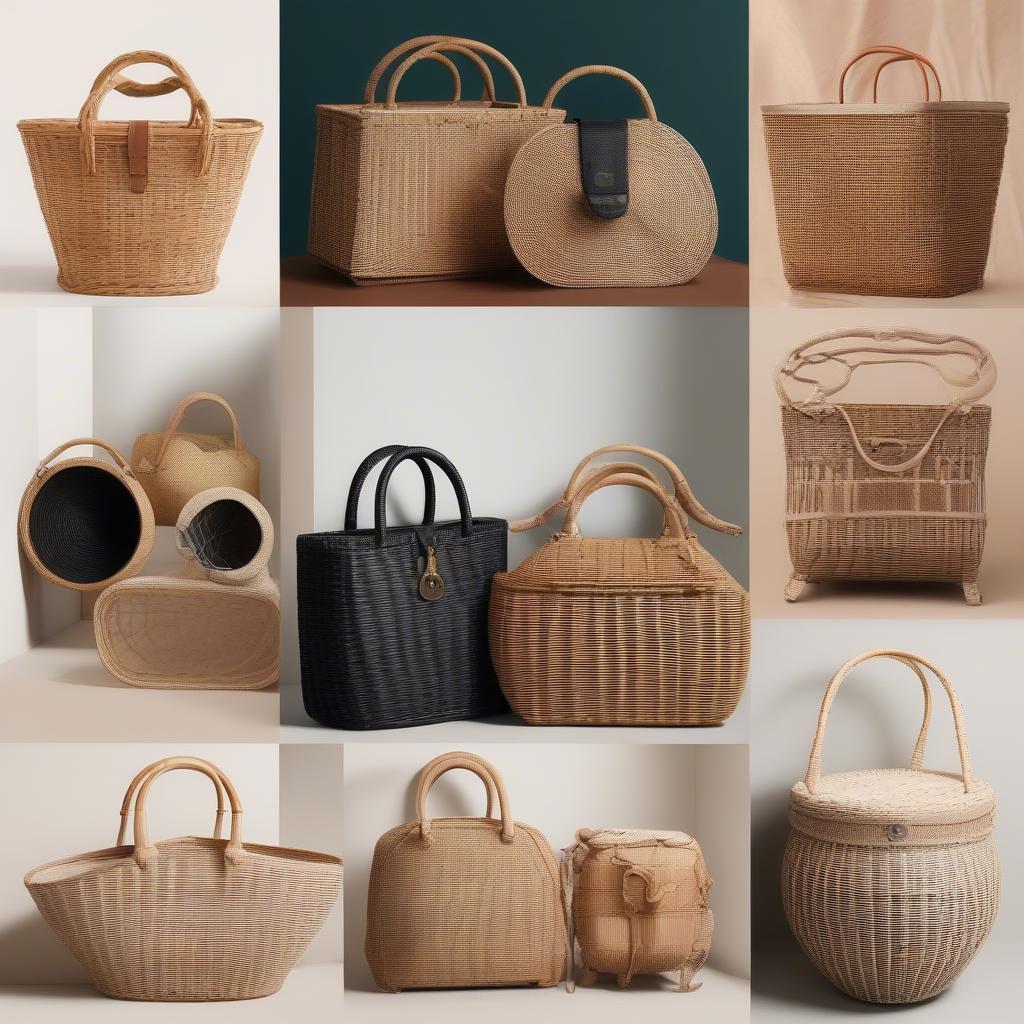Woven Bag
Ban on Non-Woven Bags: Navigating the Shift Towards Sustainable Alternatives
The increasing awareness of the environmental impact of single-use plastics has led to discussions and actions surrounding a ban on non-woven bags. Are these bags truly eco-friendly, or are they just another form of plastic pollution in disguise? This article delves into the complexities of non-woven bags, exploring their composition, the rationale behind bans, and the sustainable alternatives gaining traction. non woven bags ban
Understanding Non-Woven Bags: A Deeper Look
Non-woven bags, often touted as a reusable alternative to plastic, are made from polypropylene, a type of plastic. While they can be reused, their durability is often limited, leading to eventual disposal. The manufacturing process also raises environmental concerns due to its energy consumption and potential for pollution.
- Made from polypropylene (a plastic)
- Often marketed as reusable
- Limited durability compared to other options
 Non-Woven Bag Manufacturing Process
Non-Woven Bag Manufacturing Process
The Reasoning Behind Bans and Restrictions on Non-Woven Bags
Several regions are considering or have already implemented bans on non woven bags. These bans aim to reduce plastic waste and encourage the adoption of truly sustainable alternatives. The Ban On Non Woven Bags, while seemingly drastic, highlights the growing concern about the pervasiveness of plastic pollution. Tamil Nadu, a state in India, is a prime example of a region taking proactive steps. non woven bags ban in tamilnadu
Are Non-Woven Bags Really Eco-Friendly?
This is a complex question. While they can be reused, their lifespan is often shorter than advertised, and their ultimate disposal still contributes to plastic waste. Furthermore, the “eco-friendly” label can mislead consumers into believing these bags are a perfect solution, hindering the adoption of genuinely sustainable choices.
- Reusable, but with limited lifespan
- Disposal still contributes to plastic waste
 The Lifespan of a Non-Woven Bag Compared to Other Bag Types
The Lifespan of a Non-Woven Bag Compared to Other Bag Types
Exploring Sustainable Alternatives: A Return to Traditional Crafts
With increasing scrutiny on non woven polypropylene bags ban, there’s a resurgence of interest in traditional, handcrafted bags. Materials like wicker and rattan offer durability, aesthetic appeal, and genuine sustainability. non woven polypropylene bags ban These natural fibers are biodegradable and renewable, representing a closed-loop system that minimizes environmental impact.
- Wicker and rattan: durable and aesthetically pleasing
- Biodegradable and renewable materials
“The move away from non-woven bags represents a positive shift towards embracing truly sustainable practices,” says Anya Sharma, a sustainable materials consultant. “Natural fibers like wicker and rattan provide a beautiful and eco-conscious alternative, supporting traditional craftsmanship and reducing our reliance on plastic.”
The Benefits of Wicker and Rattan
These materials offer a compelling alternative to non-woven bags:
- Durability: Wicker and rattan are known for their strength and longevity.
- Sustainability: These natural fibers are biodegradable and renewable.
- Aesthetic Appeal: Handcrafted wicker and rattan bags add a touch of elegance and natural beauty.
 Variety of Wicker and Rattan Bags
Variety of Wicker and Rattan Bags
Conclusion: Embracing a Sustainable Future with Conscious Choices
The ban on non-woven bags is a critical step towards reducing plastic pollution and fostering a more sustainable future. By understanding the limitations of non-woven materials and exploring alternatives like wicker and rattan, we can make informed choices that benefit both the environment and our communities. Choosing reusable, sustainable bags like are non woven bags banned in india is a step towards reducing our reliance on plastic. Let’s choose wisely.
FAQs
- What are non-woven bags made of? Polypropylene, a type of plastic.
- Why are some places banning non-woven bags? To reduce plastic waste and encourage the use of more sustainable alternatives.
- Are wicker and rattan bags expensive? They can be more expensive initially but offer greater durability and longevity.
- Where can I buy wicker and rattan bags? Specialty stores, online marketplaces, and artisan shops.
- Are non-woven bags recyclable? While technically recyclable, they are often not recycled in practice due to contamination and processing challenges.
- What are the best alternatives to non-woven bags? Reusable bags made from natural fibers like wicker, rattan, jute, and organic cotton.
- Are there any regulations on non woven bags banned in tamilnadu? Yes, Tamil Nadu has implemented a ban on certain types of non-woven bags. non woven bags banned in tamilnadu
“Consumers are increasingly aware of the environmental impact of their choices,” adds Raj Patel, an environmental advocate. “The demand for truly sustainable alternatives is growing, and businesses that embrace these changes will be well-positioned for the future.”
Need support? Contact us at Hanoi, Vietnam or Tech Avenue, Suite 12, San Francisco, CA 94105, USA. We have a 24/7 customer support team.
